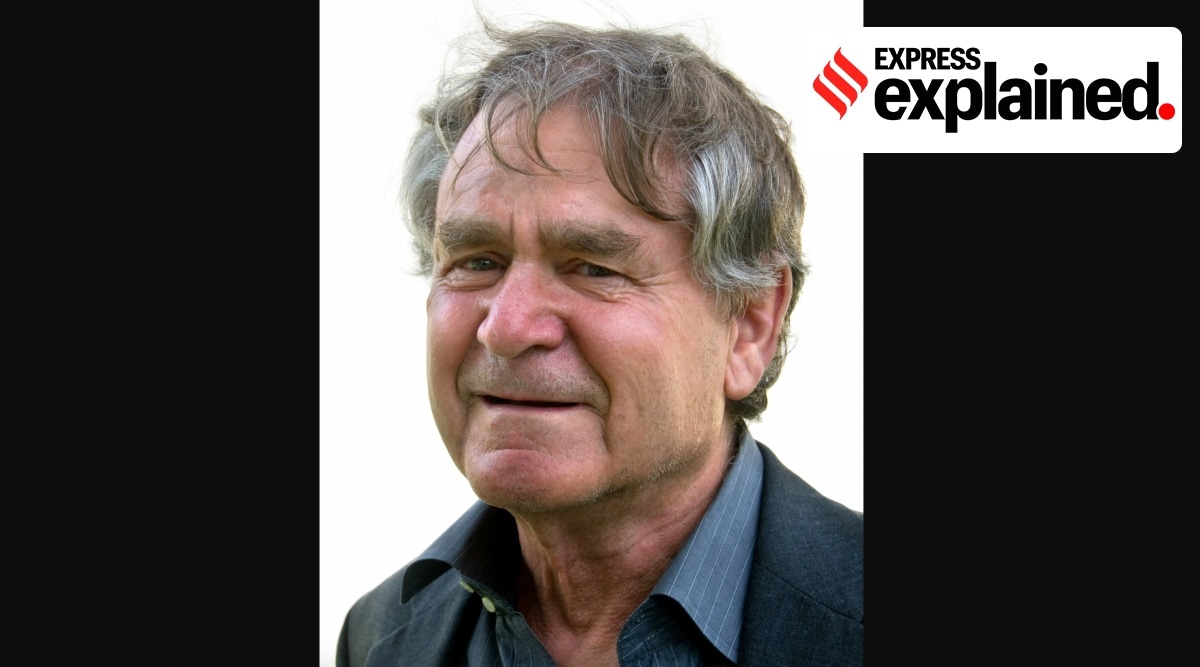The life and contributions of philosopher Ian Hacking
Hacking stood out as a philosopher who was interested in knowing what we know and the nature of our knowledge, with interests spanning across probability, experimental physics, philosophy of language, logic, mental health, race, and poverty.
 Canadian philosopher Ian Hacking in 2009. (Photo via Ludvig Hertzberg/Wikimedia Commons)
Canadian philosopher Ian Hacking in 2009. (Photo via Ludvig Hertzberg/Wikimedia Commons) Canadian philosopher Ian Hacking, renowned for his contributions to the philosophy of science in particular, died earlier this month on May 10.
Author of multiple books, Hacking was also a professor and was long associated with the University of Toronto’s Philosophy department. His “wide-ranging work probed foundational questions about the nature of concepts”, said his obituary from the university, adding that he is credited with bringing a historical approach to the philosophy of science. Hacking also wrote on topics as wide-ranging as probability, experimental physics, philosophy of language, logic, mental health, race, and poverty, to name a few.
Academic interests
Hacking was born in Vancouver in 1936. The New York Times said in an obituary that his daughter Jane recalled his interest in learning beginning at an early age. “When he was 3 or 4 years old, he would sit and read the dictionary,” Jane Hacking said. “His parents were completely baffled.”
In his obituary written by the University of Toronto, it was noted that he initially studied mathematics and physics at the University of British Columbia (BA, 1956). He earned further degrees in Moral Sciences from the University of Cambridge, with a bachelor’s degree (1958) and a PhD (1962).
He later taught at UBC, Cambridge, Stanford University and the Makerere University College in Uganda.
Eran Tal, an associate professor of Philosophy at Canada’s McGill University, who was mentored by Hacking, recalled that at one point early in Hacking’s life he was headed in a different direction. After being denied a graduating scholarship from UBC at the end of his undergraduate studies and told to “get a job,” Hacking “was about to go to work for Shell finding oil in Alberta.” He had worked with the company as a geophysicist trainee, earlier. At the last moment, he won an entrance scholarship to Trinity College, Cambridge, that would lead to an entirely different career path.
What set him apart?
As the University of Toronto says in its obituary, “Uniquely, his work held sway outside of the discipline of philosophy as well. In addition to recognition in the social sciences and humanities, Hacking stood out as a philosopher who also attracted praise and respect in the sciences, seeing several of his essays included in annual collections of the best writing in mathematics.”
Canadian news organisation The Globe and the Mail also said in a report how even early on, he was “writing in a clear and penetrating style”, and brought his analytical skills to bear on a wide range of topics, starting with ‘The Logic of Statistical Inference’, published in 1965. “I was nobody in that world…But within weeks of that book appearing, I had some of the most serious, detailed letters that I’ve ever received in my life from the major figures in the field,” he said.
In it, he discussed the principles which underlie modern work in statistics and tested them both at a philosophical level and in terms of their practical consequences.
In his book ‘Historical Ontology’, he reflected on the philosophical uses of history. It focused on the “historical emergence of concepts and objects”, through new uses of words and sentences in specific settings, and new patterns or styles of reasoning within those sentences, according to its description.
French philosopher Michel Foucault’s influence is also seen in his work, who wrote seminal works on questioning the basis of existing knowledge, weaving in ideas of psychology as well.
Later too, both in sciences and social sciences, Hacking’s work looked to examine pre-existing methods of studies and of assessing phenomena. He once wrote, “I know many people who have been disciplined by disciplines. I mean, bullied by bosses who sternly strive to maintain preestablished institutional structures of inquiry.”
For instance, as the Globe and the Mail notes, he became fascinated with the question of how individuals come to be categorised into groups and how terms such as “juvenile delinquent” “arise and propagate through culture”. “He used the term ‘looping effect’ to describe how the act of putting people into a category, shapes how they are perceived and how they perceive themselves, which in turn influences their behaviour and alters the category,” it said.
Hacking was the winner of the 2009 Holberg Prize, instituted by the Norwegian government for a scholar who has made contributions to research in the humanities, social science, law or theology. It noted in its citation, “Throughout his career Hacking has addressed the central philosophical question of scientific realism: whether the theoretical entities postulated by the sciences—from ‘electron’ to ‘multiple personality disorder’—are real in the same way as everyday objects. This issue is at the heart of his thinking about human kinds.”
- 01
- 02
- 03
- 04
- 05






































